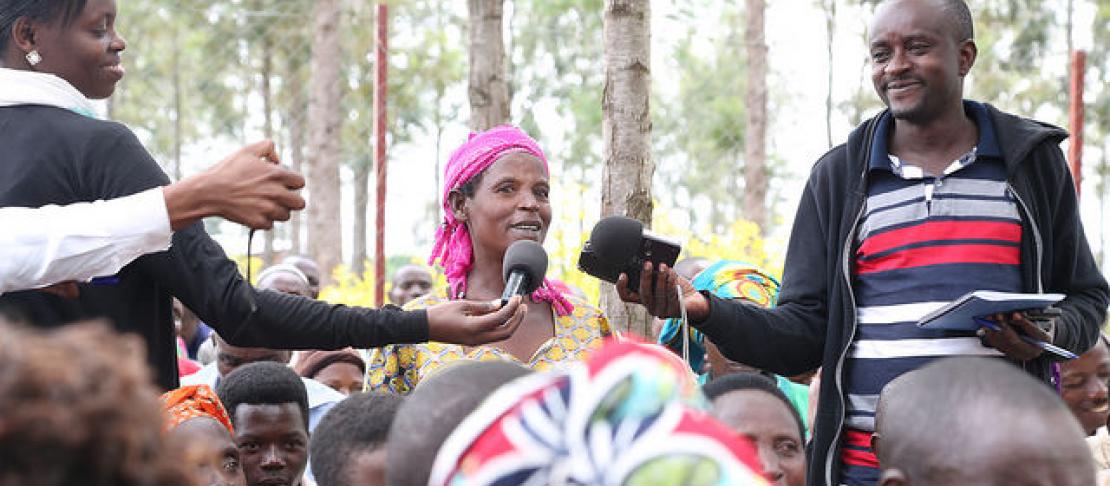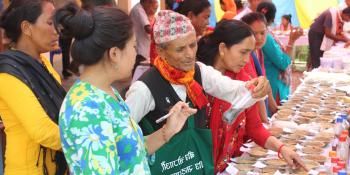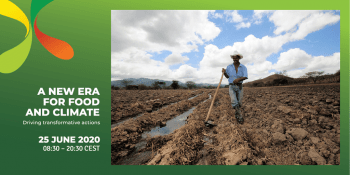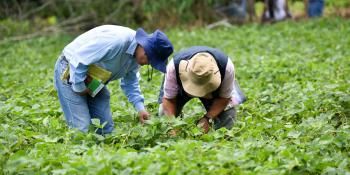Stronger processes, better results: solving complex problems with social learning

New working paper and compendium of social learning case studies highlight the importance of a strong process for achieving good outcomes
A few years ago, the CGIAR Research Program on Climate Change, Agriculture and Food Security (CCAFS) and several partners began thinking about how transformative partnerships could help solve the seemingly intractable problem of adaptation to climate change on a large scale. One of these partners, the International Institute for Environment and Development (IIED), spearheaded part of what became the Climate Change and Social Learning (CCSL) initiative.
[Social learning approaches] can strengthen relationships between key stakeholders, enabling a quick response to changing evidence or contexts. This leads to solutions that are more appropriate and sustainable. They can also help bring together short-term and longer-term priorities, especially when the learning and action cycles continue beyond traditional four or five-year projects.
Typically, social learning approaches have helped solve natural resource management issues, for instance by working out ways to share scarce water resources across groups of farmers.
But an emerging body of evidence shows this kind of approach can be effective in solving other complex problems, including those arising from climate change and food insecurity.”
IIED and other partners created a monitoring and evaluation framework to track the effectiveness of social learning programs. A recent blog post and two new publications reveal the findings.
The case studies included were:
- The 'Potato Park' in the Peruvian Andes
- The 'Bolsa Floresta Programme' in the Brazilian Amazon
- The African Climate Change Resilience Alliance (ACCRA) in Uganda
- The Policy Action for Climate Change Adaptation (PACCA) in East Africa, and
- The Collaborative Adaptation Research Initiative for Africa and Asia (CARIAA)
The four key dimensions of social learning approaches are engagement, iterative learning, building capacity, and challenging institutions. Using the indicators of the monitoring and evaluation framework, each of the five initiatives were given a score in each dimension. A working paper by project leaders Marissa van Epp and Ben Garside pulls out lessons from across all the programs evaluated, and a compendium highlights the case studies in more detail.
Using the framework to evaluate five different initiatives at different scales yielded promising results. As described by Garside and van Epp on IIED’s blog:
Our findings confirm the theory: that social learning-orientated approaches with strong process leads to collective learning and positive change; and where the four key themes interlink, the results were stronger still. Conversely, outcomes were weak where there is little or no process.”
Meeting the challenges associated with climate change and its impacts on agriculture and food security are unlikely without transforming the ways researchers, policymakers, farmers, civil society, and the private sector all interact. Social learning approaches, implemented using strong processes and designed to challenge institutions, offer a way to make progress and create buy-in for change. Understanding the process of change (from individual farmer behavior change up to transformative institutional change) is what will make the difference between knowing that things need to be different for us to adapt to a changing climate and actually getting there.
Read more
- Working paper: Solving ‘wicked’ problems: can social learning catalyse adaptive response to climate change?
- Case study compendium: Solving ‘wicked’ problems: can social learning catalyse adaptive response to climate change? A compendium of case studies
Laura Cramer is Science Officer with the flagship on Priorities and Policies for CSA.
Interested in learning more about our work? Sign up for the Priorities and Policies for CSA quarterly newsletter.



